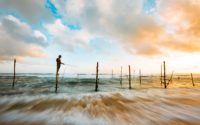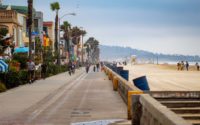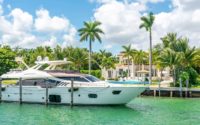Reasons to travel to Kruger National Park
Kruger National Park is one of the most popular and iconic game reserves in South Africa, covering an area of over 19,000 square kilometers. Established in 1898, it is one of the oldest wildlife reserves in Africa and is home to a diverse range of flora and fauna, including the famous Big Five – elephants, lions, leopards, rhinos, and buffalos. The park boasts over 500 bird species and numerous other wildlife species, making it a must-visit destination for nature lovers and wildlife enthusiasts.
Visitors to Kruger National Park can explore the park on guided game drives or self-drive safaris, both of which provide a unique and unforgettable wildlife viewing experience. The park’s accommodation options cater to a variety of budgets and preferences, ranging from budget-friendly campsites to luxurious private lodges. Additionally, the park offers various activities, such as wilderness trails, bush walks, and birding tours, for visitors to experience the park’s wildlife and nature up close.
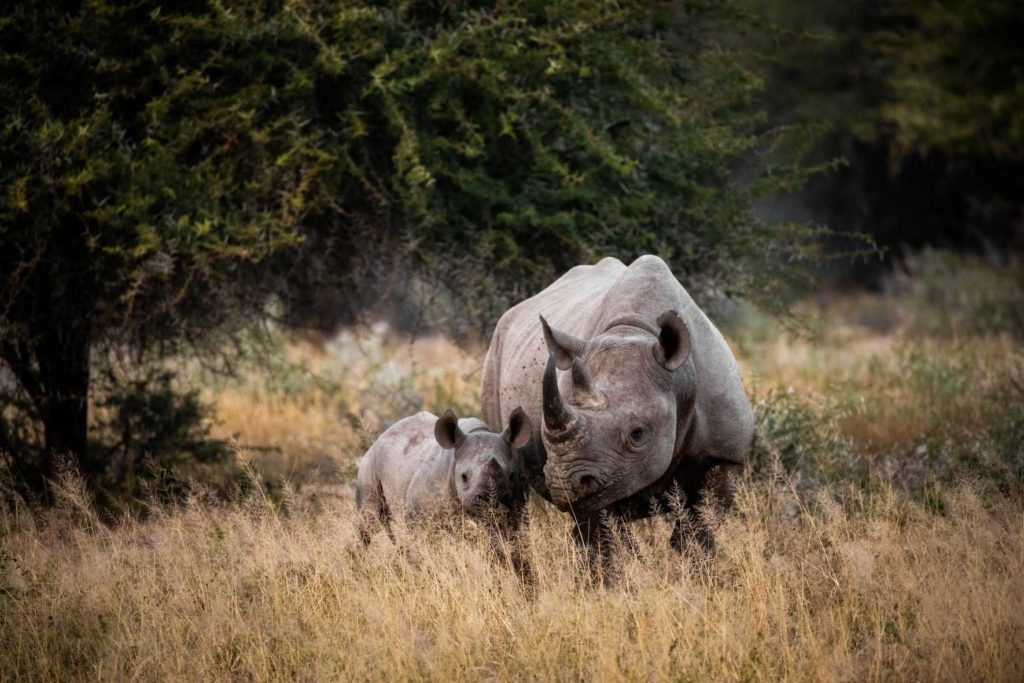
Best time to visit the Kruger National Park
The peak tourist season in Kruger National Park is from June to September, which is the winter season in South Africa. During this time, the park experiences dry and cooler weather, making it easier to spot wildlife as they gather around watering holes and rivers. Additionally, the winter season is ideal for bird watching, as many species migrate to the park during this time.
The summer season, from October to March, is the park’s rainy season, with hot and humid weather conditions. Although this time of year may be less appealing to some visitors due to the heat and humidity, it is the best time to see the park’s newborn wildlife, including baby impalas and other antelopes. Additionally, the park’s vegetation is lush and green during this time, making it a great time for photography.
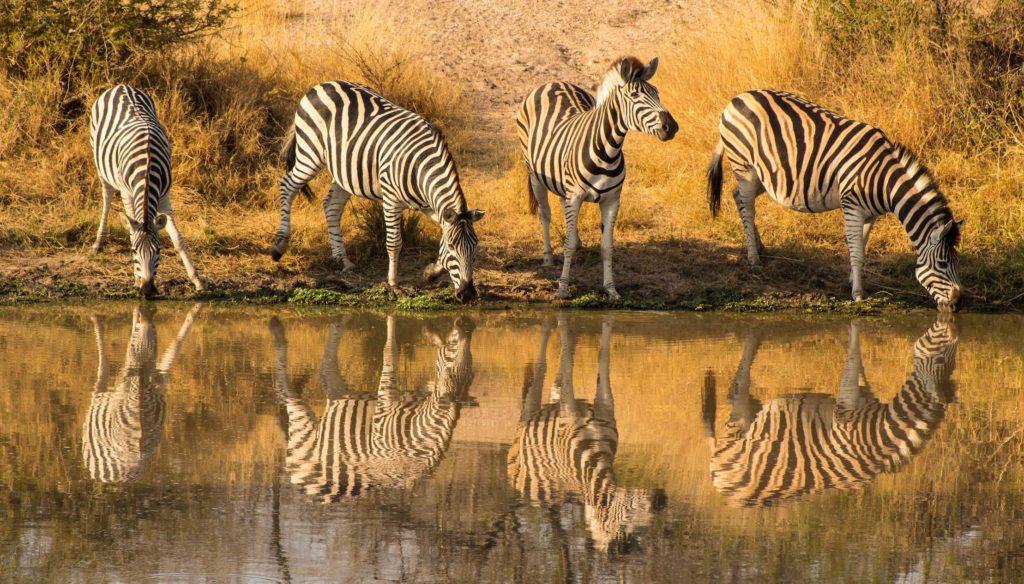
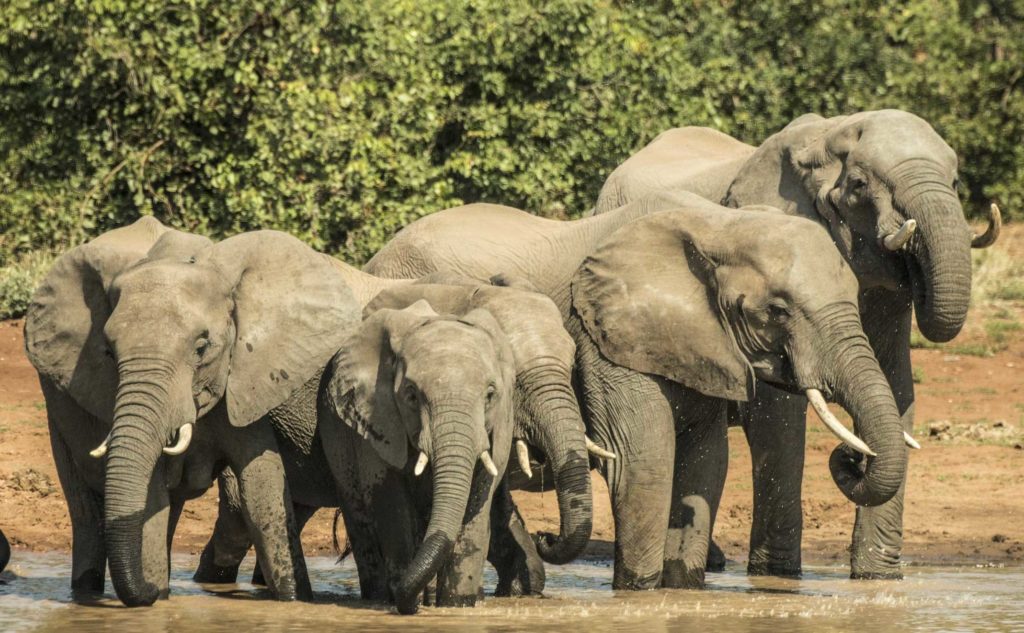
What to expect when visiting the Kruger National Park
Visiting the Kruger National Park is an unforgettable experience for nature and wildlife enthusiasts. Here’s what visitors can expect during their trip to the park:
Wildlife sightings: Kruger National Park is home to a wide range of wildlife, including the famous Big Five – elephants, lions, leopards, rhinos, and buffalos. Visitors can expect to see a variety of animals during their safari, including giraffes, zebras, hippos, crocodiles, and various antelope species. The park is also a birdwatcher’s paradise, with over 500 bird species to spot.
Accommodation options: Kruger National Park offers a range of accommodation options for visitors, including rest camps, bushveld camps, and private lodges. These lodges range from budget-friendly to luxurious, catering to a variety of budgets and preferences. Visitors can expect comfortable accommodation in beautiful natural settings, with some lodges even offering views of watering holes and wildlife.
Activities: Visitors can experience the park in a variety of ways, from guided game drives and self-drive safaris to bush walks and birding tours. Guided tours with experienced guides offer visitors an educational and informative experience, while self-drive safaris allow visitors to explore the park at their own pace. Wilderness trails and bush walks offer visitors a unique and intimate experience of the park’s wildlife and nature.
Weather: The weather in Kruger National Park varies depending on the time of year, with dry and cooler weather during the winter season (June to September) and hot and humid weather during the summer season (October to March). Visitors should come prepared for the weather conditions during their visit.
Conservation efforts: Kruger National Park is committed to conservation efforts and sustainability practices, and visitors can expect to learn about these efforts during their trip. The park has various initiatives aimed at preserving the park’s wildlife and natural resources, such as anti-poaching efforts and community engagement programs.
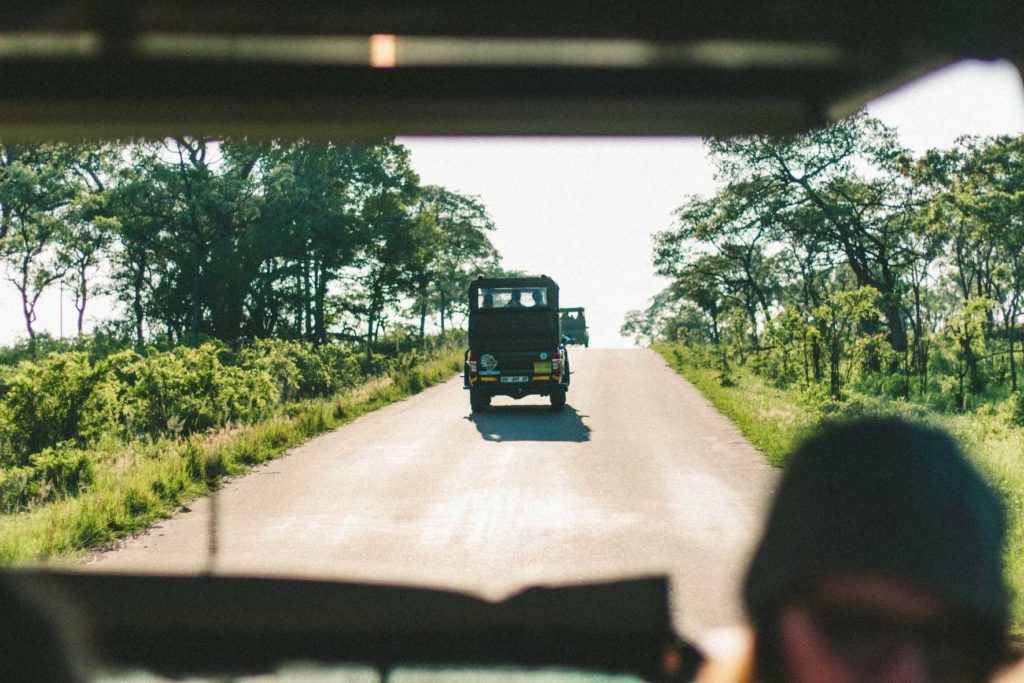
Driving in the Kruger National Park
Driving into Kruger National Park is a popular option for visitors who want to explore the park at their own pace. Visitors should be aware of the safety measures when driving in the park to ensure a safe and enjoyable experience.
Speed Limits: The speed limit within the park is 50 km/h on tarred roads and 40 km/h on gravel roads. Visitors should adhere to the speed limits and be aware of wildlife crossings, as animals may suddenly cross the road.
Observe Wildlife from a Safe Distance: Visitors should keep a safe distance from the wildlife and never attempt to feed or approach them. While driving, it is important to be vigilant and watch out for animals that may suddenly appear on the road.
Stay in Your Vehicle: Visitors should not leave their vehicle unless they are in designated areas or have permission from park rangers. The park’s wildlife is unpredictable, and visitors should stay in their vehicle for safety.
Use Headlights at Night: Visitors should use their headlights when driving at night to avoid collisions with animals. It is also advisable to drive at a slower speed at night to avoid any accidents.
Carry Enough Water and Food: It is essential to carry enough water and food when driving in the park, especially when embarking on longer drives. Visitors should also carry a first aid kit and be prepared for emergencies.
Know the Emergency Numbers: Visitors should familiarize themselves with the park’s emergency numbers, which include 10111 for emergencies and 076 801 9679 for park emergencies.
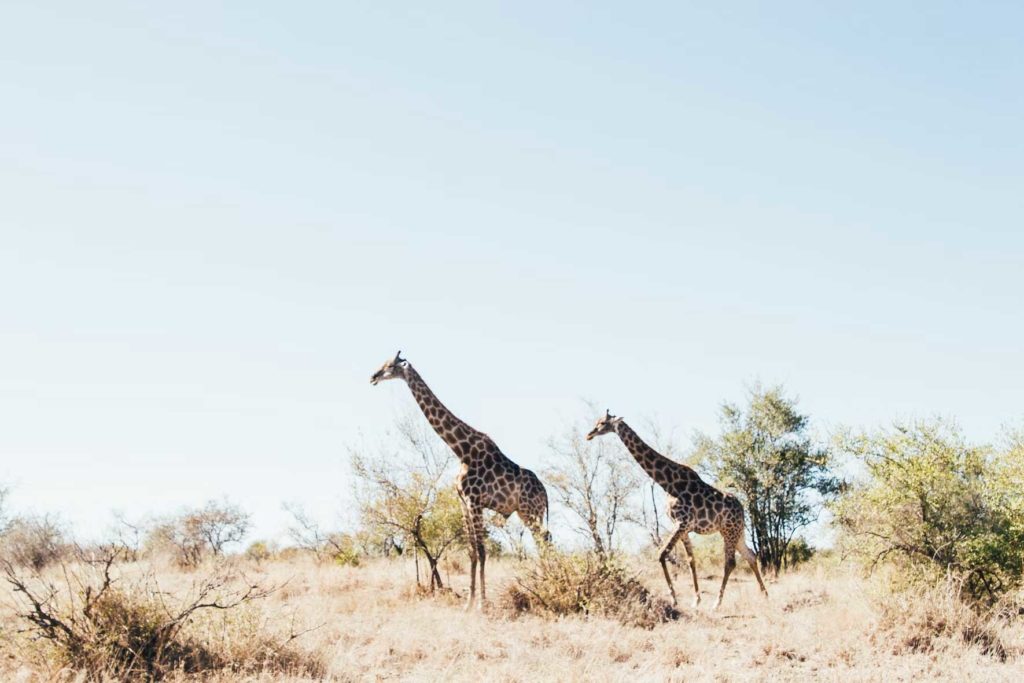
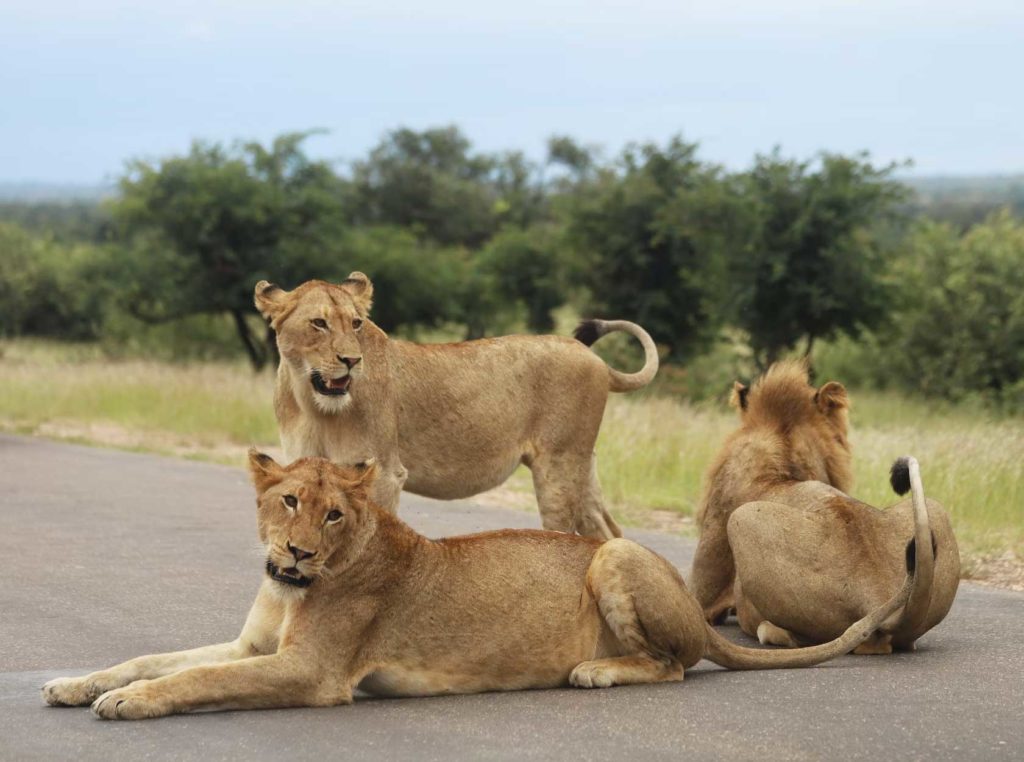
Practical information about the Kruger National Park
Entrance fees and additional fees
The entrance fee for the Kruger National Park is as follows:
- South African citizens and residents (with ID): R105 per adult and R52 per child per day
- SADC nationals (with passport): R210 per adult and R105 per child per day
- Standard Conservation Fee (foreign visitors): R424 per adult and R212 per child per day
There are additional fees for activities such as guided game drives, wilderness trails, and bush walks. These fees vary depending on the activity and duration.
Accommodation options
There are various accommodation options inside and outside the park, ranging from budget-friendly to luxury lodges. Inside the park, options include rest camps, bushveld camps, and private lodges. Prices vary depending on the level of comfort and services provided. Some of the popular options include:
- Rest camps: Skukuza, Satara, Lower Sabie, and Olifants Rest Camps
- Bushveld camps: Biyamiti, Shimuwini, Sirheni, and Talamati Bushveld Camps
- Private lodges: Singita Kruger National Park, Lion Sands Kruger National Park, and Sabi Sabi Private Game Reserve.
Outside the park, visitors can find several options in nearby towns, such as Hazyview and White River. Some of the popular options include:
- Protea Hotel by Marriott Kruger Gate
- Kruger Adventure Lodge
- Hippo Hollow Country Estate
- Perry’s Bridge Hollow Boutique Hotel
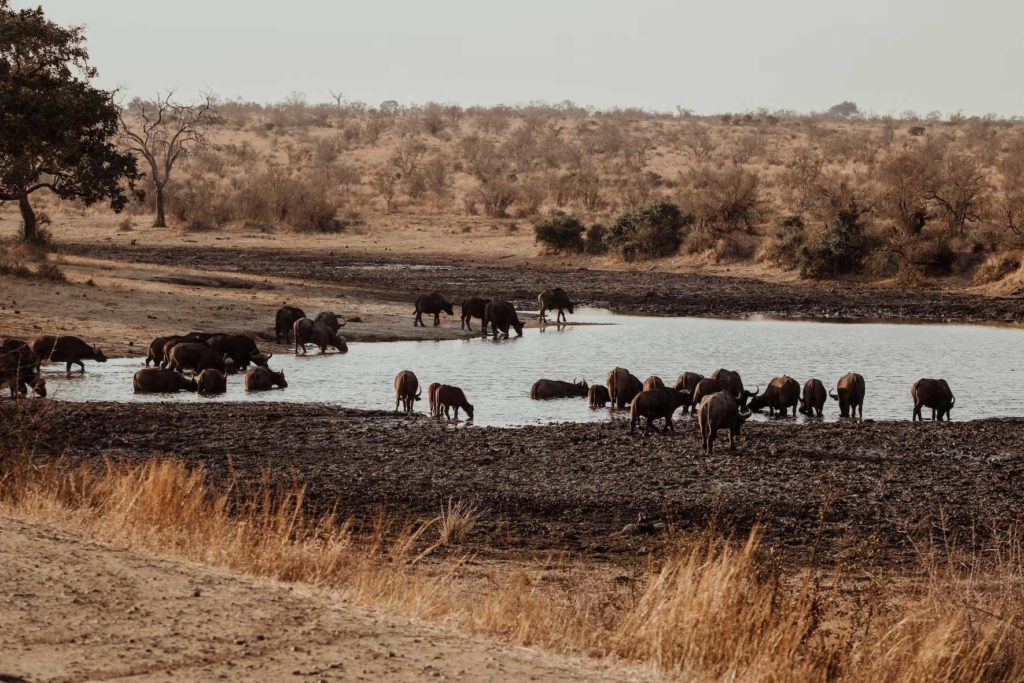
Places to eat:
Most of the rest camps and lodges inside the park have restaurants and cafes that offer a variety of cuisines, including traditional South African dishes. There are also several food stands and takeaways in the rest camps. Outside the park, visitors can find restaurants and cafes in nearby towns, such as Hazyview and White River. Some of the recommended options include:
- The Deck Restaurant at Skukuza Rest Camp
- Mugg & Bean at Lower Sabie Rest Camp
- Cattle Baron Grill & Bistro in Hazyview
- Da Loose Mongoose in Sabie
Finding a guide:
There are several tour companies and independent guides that offer services within Kruger National Park. These guides are knowledgeable about the park’s wildlife and can provide visitors with a unique and educational experience. Some of the trusted tour companies include:
- Kruger Park Tours
- Nhongo Safaris
- Viva Safaris
Visitors can also find independent guides through online directories or by asking their accommodation providers for recommendations.
Contact details:
- Kruger National Park: +27 (0)13 735 4000 / 0861 735 437
- Protea Hotel by Marriott Kruger Gate: +27 (0)13 737 7300
- Kruger Adventure Lodge: +27 (0)13 737 8111
- Hippo Hollow Country Estate: +27 (0)13 737 7752
- Perry’s Bridge Hollow Boutique Hotel: +27 (0)13 737 7752
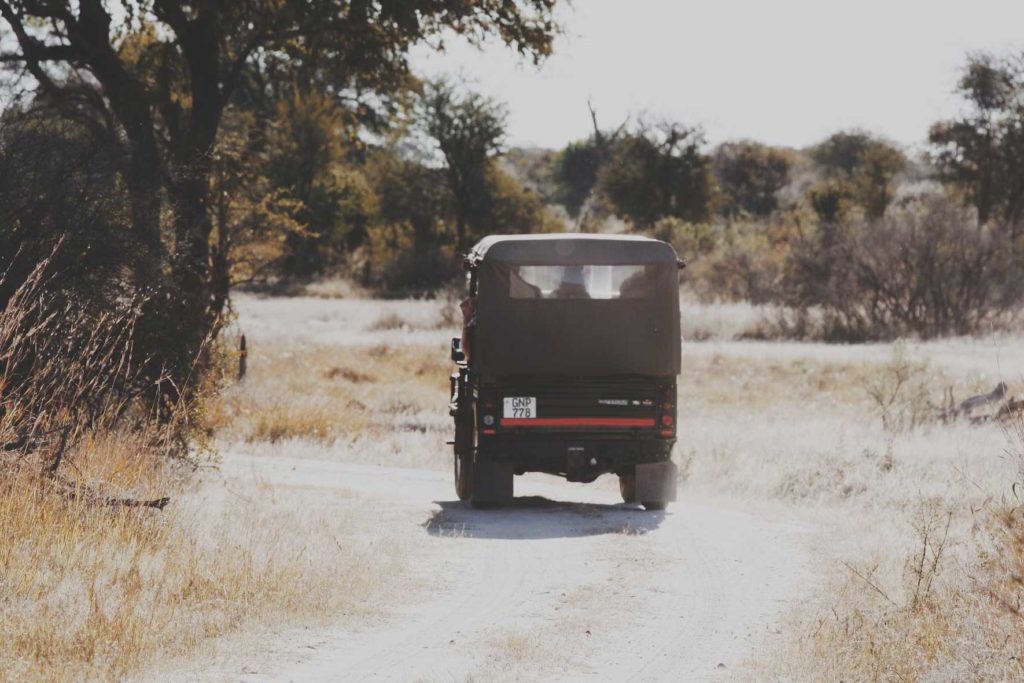
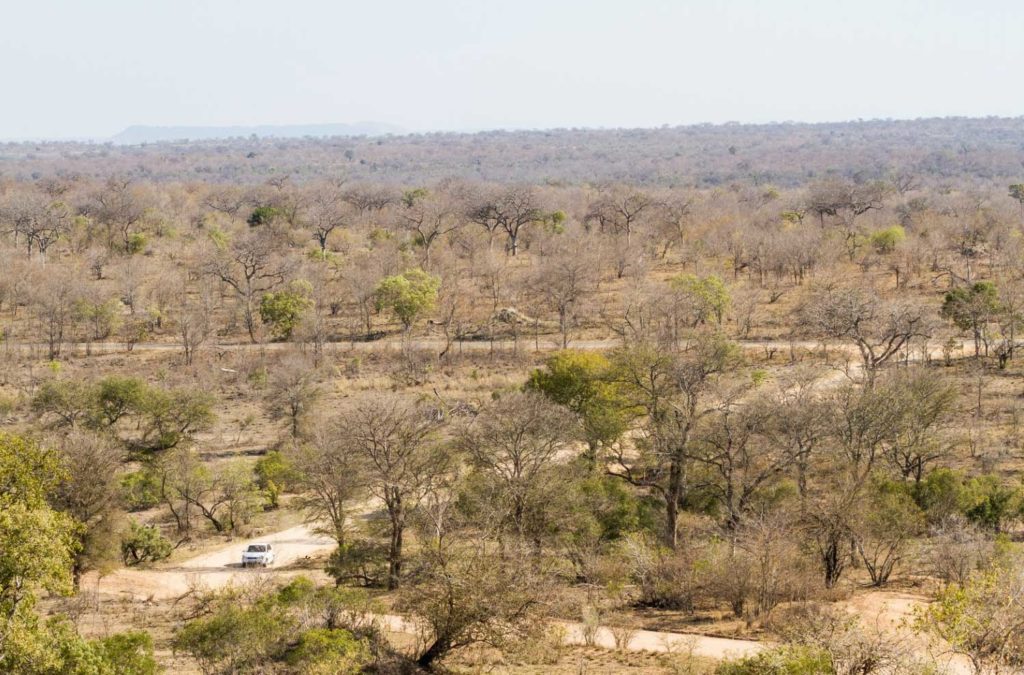
Security in the Kruger National Park
Security is an important aspect of any visit to Kruger National Park. While the park is generally safe, visitors should be aware of potential risks and take precautions to ensure their safety.
Crime Prevention: Visitors should always be aware of their surroundings and keep their valuables out of sight, especially when leaving their vehicle or staying in accommodation. It is advisable to keep doors and windows locked at all times.
Rangers and Security Personnel: The park has rangers and security personnel who patrol the park and ensure the safety of visitors. Visitors should report any suspicious behavior to these personnel or to the park’s emergency numbers.
Gate Times: Visitors should be aware of the park’s gate times and plan their trips accordingly. It is important to arrive at the gates before closing time to avoid being locked in the park overnight.
Wildlife Safety: Visitors should follow the park’s rules and regulations for observing wildlife and stay a safe distance from the animals. It is important to avoid getting between animals, especially during mating season or when with their young.
Vehicle Safety: Visitors should ensure that their vehicle is in good condition before entering the park and that they have enough fuel for their trip. It is also advisable to carry spare tires and basic repair tools.
Medical Emergencies: Visitors should carry a first aid kit and any necessary medication. In the event of a medical emergency, visitors should seek help from the park’s rangers or security personnel.
Check out our Travel Guides.
